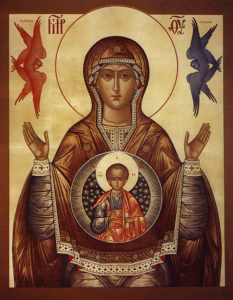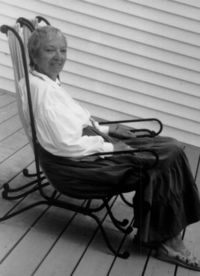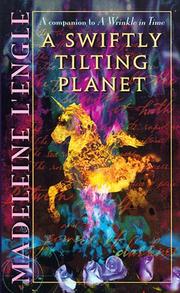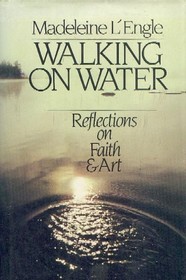To what can I compare this generation? They are like children sitting in the marketplaces and calling out to others: ‘We played the flute for you, and you did not dance; we sang a dirge and you did not mourn.’… But widom is proved right by her actions.—Jesus, Matthew 11:16-17
 There’s an interesting discussion at Zoecarnate which seems to me a microcosm of the differences between the religious and the mystical approaches. It also shows what I think are some of the challenges that “Emergent” faces in as far as it wishes to incorporate mystical spirituality into the Church.
There’s an interesting discussion at Zoecarnate which seems to me a microcosm of the differences between the religious and the mystical approaches. It also shows what I think are some of the challenges that “Emergent” faces in as far as it wishes to incorporate mystical spirituality into the Church.
Mystics, in general, have an uncomfortable time of it in churches when their spiritual views become known. This is because the function of a church (or synagogue, mosque, or temple) has a goal that is fundamentally different from that which the mystic has. The goal of the religious congregation is to help a group of people come to be in a certain shared level of the knowledge of God, and aspire for continued spiritual growth.
The goal of the mystic, however, is to know God as directly and totally as possible—to be experientially transformed into what his or her true nature actually is in essence—the image of God.
At first, it might seem like these goals reinforce each other, but in practice, they are in almost constant conflict. When the mystic begins moving beyond the religious preoccupations of sin, redemption, entry-level theology, and personal morality, he is moving away from that shared level and intending to go beyond it. This creates conflict, because the one who is seeking the common level is also strongly motivated to do so, from remembering “where he was” before he came to care about loving God, to being taught that deception runs rampant in the world, and that reliance upon the Church, Scripture, and the reinforcement of fellow believers is essential to not lose his way, and this is really is true for most on the religious path.
However, in most schools of Christianity, mysticism and religion have some common meeting points. The Catholic sacraments are meant to be mystical encounters of the soul with Christ. The “born-again” experience is the mystical renewal of the soul in Christ. The spiritual gifts (such as speaking in tongues in Charismatic and Pentecostal churches) is a mystical experience of the Spirit dwelling within. But after being born again, or receiving the Baptism of the Spirit, or partaking of the body and blood of the Lord, the guidance largely comes down to reinforcement, i.e., “keep on doing and believing the same stuff, keep on trying to improve, and see you in heaven.”
Reinforcement easily becomes an end in itself. In the fifth century, Nestorius objected to a devotional title for Mary as “Mother of God” (Theotokos) and said that Mary should be called “Mother of Christ” instead, since God existed before all. However, for the majority in the Orthodox-Catholic church, Theotokos served as reinforcement for Jesus’ divinity, which in turn reinforced the value of his death and resurrection, and so on. And those who did not want to reinforce it (for whatever reason) were suspected of possibly being against it.
Too often, the reinforcers become enforcers, and as Jesus knew from experience, the “children in the marketplace” lash out against those on the path of the wisdom teachers. It’s as though the first-graders want to control the curricula in the university.
Contemporary Christian mystics also meet the spirit of religious reinforcement. “What? you’re not reading the Bible every day? Don’t you know that it’s the only trustworthy authority?” or, “you didn’t affirm the blood sacrifice of Jesus in your last post. Don’t you believe that He’s the only way?”
With the best of intentions, these folks are cornering their mystical sibs with the trap of “begging the question.” The mystic who is discovering that life in God is not about “belief” cannot give simple yes or no answers if he cares both about meeting his questioners’ concerns where they are, and being true to his own conscience. Rather, it takes either: (1) lengthy explanations, which will probably be misunderstood or cut short before he can make his point, or (2) indirect answers, such as parables, analogies, and so forth, which are also usually misunderstood!
For millennia, religion has been the traditional “entry point” to the mystical (although mysticism can certainly be addressed in non-religious ways, as in the teaching of Eckhart Tolle, for instance.) But even though mystics usually come from, and understand the religious path, non-mystics cannot understand the mystical path. So conflict is unavoidable when those on the religious path aren’t taught that there is another, interior approach. Historically, mysticism has thrived when it’s had a place of its own, removed from the “weaker brethren”, such as the convents and monasteries. But the desperate needs of today’s world force modern mystics to be in the world, the marketplace, and increasingly, even in those churches that have little history or understanding of mysticism.
May those who go to Jesus and those who go through him, live in peace together!





